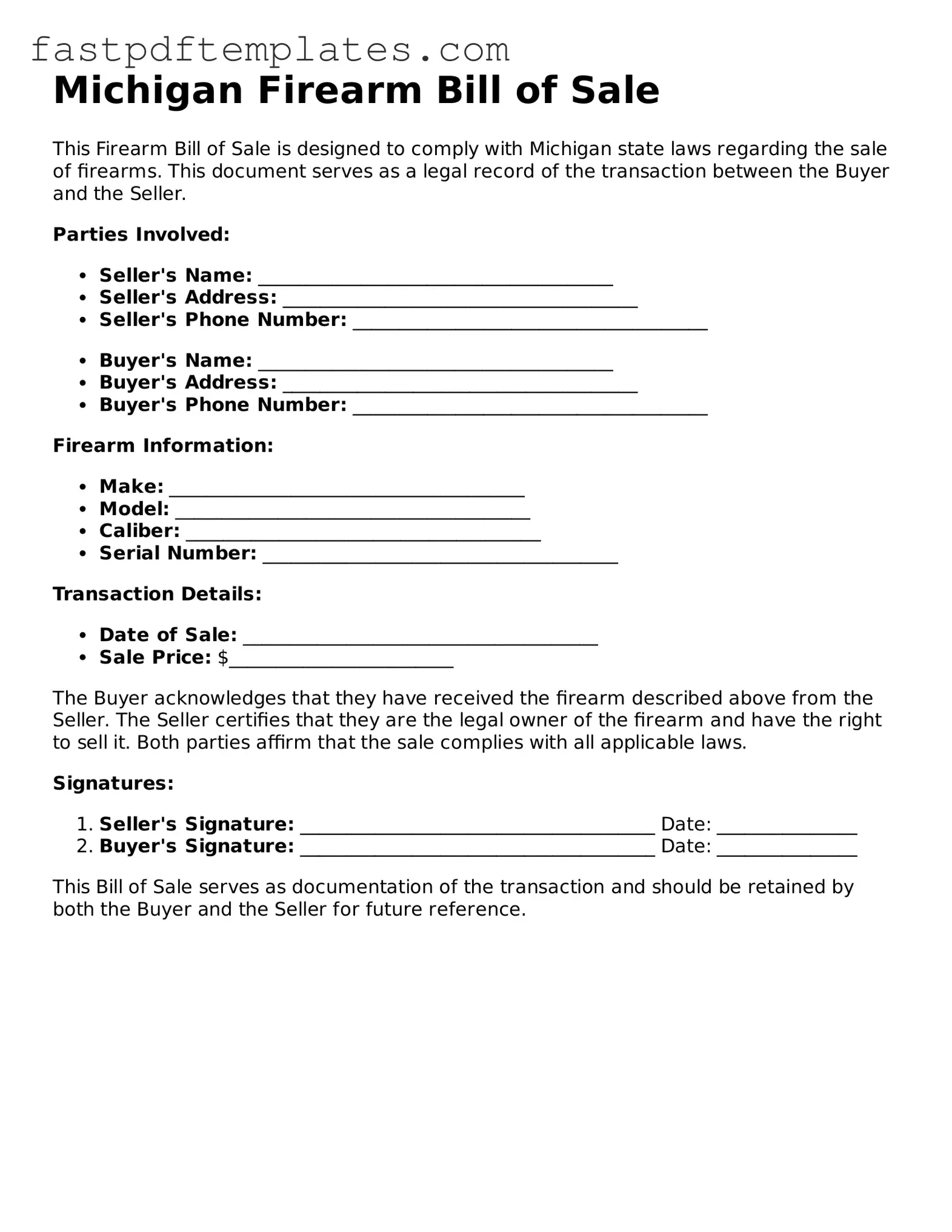Attorney-Approved Michigan Firearm Bill of Sale Document
The Michigan Firearm Bill of Sale form is a legal document that records the transfer of ownership of a firearm between a seller and a buyer. This form serves to protect both parties by providing proof of the transaction and ensuring compliance with state laws. Understanding its components and requirements is essential for anyone involved in the sale or purchase of firearms in Michigan.
Access Document

Attorney-Approved Michigan Firearm Bill of Sale Document
Access Document
Your form still needs completion
Complete your Firearm Bill of Sale online and download the final PDF.
Access Document
or
Click for PDF Form
